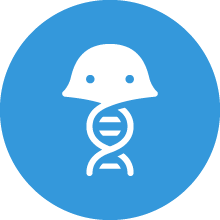Benchling SDK Documentation¶
Note
Current Version: 1.23.0 (Latest)
You are viewing the documentation for the latest version of the Benchling SDK.
The official Python SDK for Benchling, providing programmatic access to the Benchling platform for life science R&D.
Getting Started¶
Installation¶
pip install benchling-sdk
Authentication¶
Choose one of these authentication methods:
API Key Authentication:
from benchling_sdk import Benchling
from benchling_sdk.auth.api_key_auth import ApiKeyAuth
benchling = Benchling(
url="https://your-tenant.benchling.com",
auth=ApiKeyAuth("your_api_key_here")
)
OAuth2 Authentication:
from benchling_sdk import Benchling
from benchling_sdk.auth.client_credentials_oauth2 import ClientCredentialsOAuth2
benchling = Benchling(
url="https://your-tenant.benchling.com",
auth=ClientCredentialsOAuth2(
client_id="your_client_id",
client_secret="your_client_secret"
)
)
Examples¶
See here for more common SDK interactions and here for additional code recipes.
Create a DNA Sequence¶
from benchling_sdk.models import DnaSequenceCreate
# Create a new DNA sequence
sequence = DnaSequenceCreate(
name="My DNA Sequence",
bases="ATGCGATCGATCGATC",
folder_id="lib_abc123" # Your folder ID
)
created_sequence = benchling.dna_sequences.create(sequence)
print(f"Created sequence: {created_sequence.name} (ID: {created_sequence.id})")
Get a Sequence by ID¶
# Retrieve an existing sequence
sequence = benchling.dna_sequences.get_by_id("seq_abc123")
print(f"Sequence: {sequence.name}")
print(f"Bases: {sequence.bases}")
Previous Versions¶
Tip
Need an Older Version?
Previous SDK releases are available in the sidebar version selector.
Package contents:
